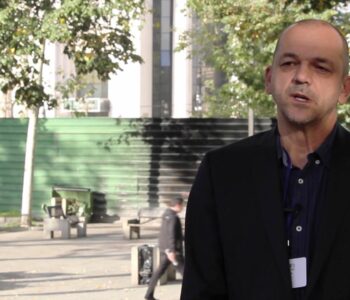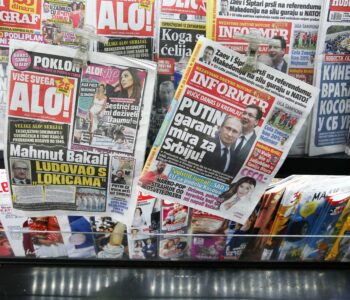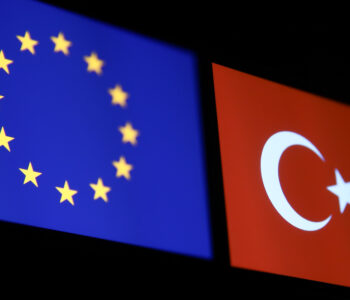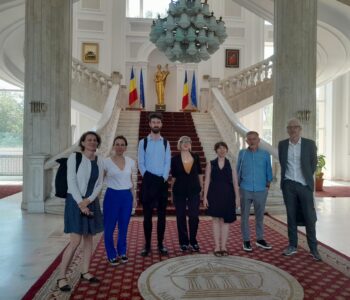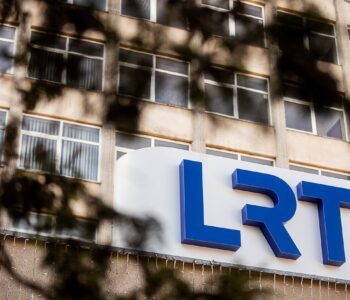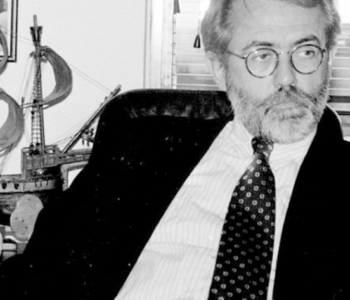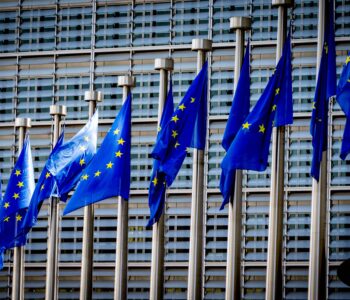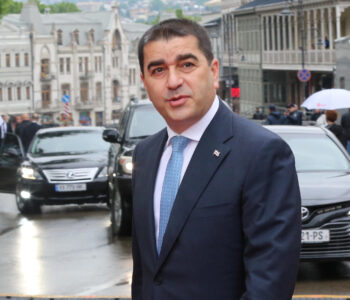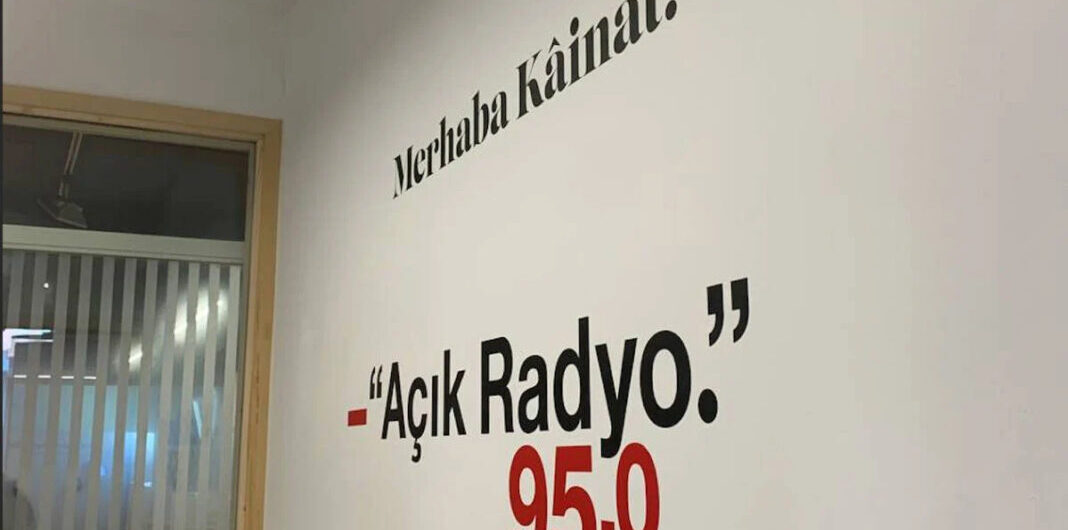 Library
Library
Turkey: Freedom of the press and expression groups condemn…
Turkey: Freedom of the press and expression groups condemn broadcast regulator’s silencing of Açık Radyo
The undersigned freedom of the press and expression organizations condemn the decision by Turkey’s broadcast regulator to revoke the license of independent radio station Açık Radyo. We call on the authorities in Turkey to uphold their obligations to protect press freedom and freedom of expression in line with the Turkish Constitution and international human rights law, and to reinstate Açık Radyo’s license. Media outlets in Turkey must be free to enable debate on issues of public interest without fear of sanctions.
Turkish translation available here.
License Revocation
Turkey’s Radio and Television Supreme Council (RTÜK) penalized Açık Radyo in May after a guest made the following remarks on air: “the 109th anniversary of the deportations and massacres, referred to as genocide, that occurred on Ottoman soil. The Armenian genocide commemoration was banned again this year, as you know”. RTÜK accused the station of “inciting hatred or enmity or to foster feelings of hatred in society”, under Article 8 of Law No. 6112 and ordered an administrative fine and a five-day suspension for the same broadcast. Açık Radyo paid the fine but continued to broadcast its programmes, which RTÜK deemed a violation of the conditions set forth in its sanction. In July, RTÜK revoked Açık Radyo’s broadcasting license.
İlhan Taşcı, a member of RTÜK nominated by the country’s main opposition party, CHP, announced RTÜK’s decision over X. Taşcı told IPI: “The issue could have been approached from the perspective of strengthening press freedom, considering that the broadcaster paid the fine. Based on this, a decision favoring the broadcaster could have been made – one that upholds press freedom while ensuring the public does not lose a radio station that has operated for 30 years”.
In its press release, Açık Radyo protested RTÜK’s decision with the following words: “It is unacceptable that, on the basis of an expression, which indisputably stands within the scope of freedom of expression and press freedom, voiced during our program ‘Açık Gazete’, we now face the revocation of Açık Radyo’s broadcast license.” Launched in 1995, Açık Radyo (Open Radio in English) is an independent, not-for-profit media organization.
Continued Harassment of Independent Media
The revocation of Açık Radyo’s license comes amid a series of penalties that RTÜK has imposed on six different TV and radio channels this year. These media outlets, known for their critical reporting, include Now TV, which was fined four times, and Tele1, which was fined three times. In most cases, the channels were given a 2% administrative fine.
In the case of Açık Radyo, the remarks in question are clearly covered by the right to freedom of expression as guaranteed by international human rights law, including the European Convention on Human Rights. We urgently call on RTÜK to swiftly reinstate Açık Radyo’s license.
More broadly, we call on RTÜK to act according to its mandate and secure freedom of expression and media pluralism in the country instead of censoring critical and independent media. We also call on the Turkish authorities to reconsider their approach toward media regulation.
Türkiye: Basın ve ifade özgürlüğü kuruluşları, RTÜK’ün Açık Radyo’yu susturmasını kınıyor
Yayında geçen “Ermeni Soykırımı” sözü nedeniyle Açık Radyo’nun lisansı iptal edildi
Uluslararası Basın Enstitüsü (IPI), aşağıda imzası bulunan basın ve ifade özgürlüğü kuruluşlarıyla birlikte, Türkiye’nin yayın düzenleyicisi RTÜK’ün bağımsız radyo istasyonu Açık Radyo’nun lisansını iptal etme kararını kınıyor. Türkiye’deki yetkilileri, Türkiye Cumhuriyeti Anayasası ve uluslararası insan hakları hukuku doğrultusunda basın ve ifade özgürlüğünü koruma yükümlülüklerini yerine getirmeye ve Açık Radyo’nun lisansını iade etmeye çağırıyoruz. Türkiye’deki medya kuruluşları, kamuyu ilgilendiren konularda yaptırım korkusu olmaksızın tartışmaya olanak sağlamakta özgür olmalıdır.
Yayın Lisansı İptal Edildi
Radyo ve Televizyon Üst Kurulu (RTÜK), Açık Radyo’da Açık Gazete adlı programın 24 Nisan tarihli yayınına katılan konuğun “(…) Ermeni, yani Osmanlı topraklarında gerçekleşen tehcir ve katliamların, soykırım olarak adlandırılan katliamların 109. Yıldönümü, sene-i devriyesi. Bu yıl da yasaklandı biliyorsunuz Ermeni soykırım anması” şeklindeki ifadelerinin ardından Mayıs ayında Açık Radyo’ya ceza verdi. RTÜK, kanalı 6112 Sayılı Kanun’un 8. maddesi uyarınca “toplumu kin ve düşmanlığa tahrik etmek veya toplumda nefret duyguları oluşturmak” iddiasıyla idari para cezası ve beş günlük yayın durdurma cezasına çarptırdı. Açık Radyo, para cezasını ödedi ancak yayına devam etti. RTÜK, yaptırımda belirtilen koşulların ihlal edildiğini değerlendirdi ve Temmuz ayında Açık Radyo’nun yayın lisansını iptal etti.
RTÜK’ün CHP kontenjanından seçilen üyesi İlhan Taşcı, kararı X üzerinden duyurdu. Taşcı, Uluslararası Basın Enstitüsü’ne (IPI) şunları söyledi: “Burada konuya basın özgürlüğünün güçlenmesi bakımından yaklaşılıp yayıncının para cezasını ödediği göz önünde bulundurulabilirdi. Hem basın özgürlüğü düşünülerek hem de dinleyicilerin 30 yıldır faaliyet gösteren bir radyoyu dinleme hakkını elinden almamak adına yayıncı lehine karar verilebilirdi.”
1995 yılında kurulan, bağımsız ve kâr amacı gütmeyen bir medya kuruluşu olan Açık Radyo, yaptığı basın açıklamasında RTÜK’ün kararına şu sözlerle karşı çıktı: “Programımız ‘Açık Gazete’de dile getirilen ve tartışmasız bir şekilde ifade ve basın özgürlüğü kapsamında yer alan bir ifade temelinde, Açık Radyo’nun yayın lisansının iptaliyle karşı karşıya kalmamız kabul edilemez.”
Bağımsız Medyaya Yönelik Sistematik Taciz
Açık Radyo’nun lisansının iptali, RTÜK’ün bu yıl altı farklı radyo ve televizyon kanalına uyguladığı bir dizi cezanın devamı niteliğinde. Eleştirel yayınlarıyla bilinen bu medya kuruluşları arasında dört kez %2 idari para cezasına çarptırılan Now TV ve yine üç kez %2 para cezasına çarptırılan Tele1 de bulunuyor.
Açık Radyo örneğinde ceza gerekçesi olarak gösterilen ifadeler, Avrupa İnsan Hakları Sözleşmesi de dahil olmak üzere uluslararası insan hakları hukuku tarafından güvence altına alınan ifade özgürlüğü kapsamındadır. RTÜK’ü, Açık Radyo’nun lisansını derhal iade etmeye çağırıyoruz.
RTÜK’ü görevi gereğince hareket etmeye, ifade özgürlüğünü ve medyada çoğulculuğu güvence altına almaya, eleştirel ve bağımsız medyayı sansürlemek yerine korumaya davet ediyoruz. Türkiye yetkililerini de medya düzenlemelerine yönelik yaklaşımlarını gözden geçirmeye çağırıyoruz.
İmzalayanlar
Uluslararası Basın Enstitüsü (IPI)
ARTICLE 19
Articolo 21
Avrupa Basın ve Medya Özgürlüğü Merkezi (ECPMF)
Bağımsız Gazetecilik Platformu (P24)
Çağdaş Gazeteciler Derneği (ÇGD)
Freedom House
Gazetecileri Koruma Komitesi (CPJ)
Gazetecilikte Kadın Koalisyonu (CFWIJ)
Güney Doğu Avrupa Medya Örgütü (SEEMO)
IFEX
İsveç PEN
Medya ve Göç Derneği (MGD)
Medya ve Hukuk Çalışmaları Derneği (MLSA)
PEN Amerika
PEN Norveç
Uluslararası PEN
Yabancı Medya Derneği
This statement was coordinated by the Media Freedom Rapid Response (MFRR), a Europe-wide mechanism which tracks, monitors and responds to violations of press and media freedom in EU Member States and candidate countries.

